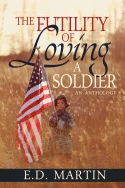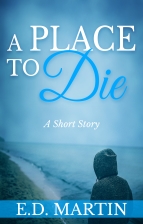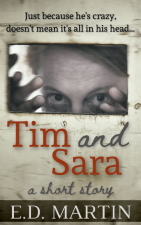I’m currently in grad school, working on my MSW with a focus on school social work. I was sitting in my policy class the other night and overheard a classmate say, “When I was young I thought I could change the world. Now I know better.”
Of the twenty people in my cohort, I’m pretty much the only one interested in policy; everyone else is going for direct service provision. And there’s nothing wrong with that.
As our professor explained: DSP are at the bottom of the waterfall to help people who’ve already been swept over the edge, while policy people are building a barrier to keep people from going over.
When it comes to education, I’ve done the DSP route. My short story collection, Us, Together, tells about some of the students I’ve worked with, of what they’ve faced. I know what it’s like working with at-risk kids everyone’s given up on.
I also know how much work there is to be done, and as I wrote in a paper for class recently, I’m not giving up. For better or worse, naive as it may seem, I’m going to make a difference, but I feel I’m better off in policy analysis and formation rather than teaching.
 Sometimes I feel like that’s taking the easy way out, because teaching is hard. Excruciatingly, heartbreakingly difficult. If you’ve never been in a classroom, officially responsible for subject matter but becoming a counselor, a parole officer, a shoulder to cry on; or if you have, and need articulation of what keeps you going or what made you stop, I highly recommend Stories From a Teacher by J. Flores.
Sometimes I feel like that’s taking the easy way out, because teaching is hard. Excruciatingly, heartbreakingly difficult. If you’ve never been in a classroom, officially responsible for subject matter but becoming a counselor, a parole officer, a shoulder to cry on; or if you have, and need articulation of what keeps you going or what made you stop, I highly recommend Stories From a Teacher by J. Flores.
He chronicles his four years teaching high school English, told in about two dozen stories. He writes about the ups and downs, the humor and the despair:
- meeting with a parent who wanted his son’s grade changed from passing to failing, to teach him that life is tough.
- joking with his students about skipping school, until one girl missed because of a miscarriage.
- guiding the students to open up about their troubled home life and helping them find help.
- turning a story about his college days into a lesson on alcohol consumption.
- making an impact on a student and not realizing it until he meets her again five years later.
Each story teaches a lesson, either to the kids or to the author himself – and often, it may not be a lesson he wants to learn. Basically, this book boils down to: life is hard for these kids. How much of himself can he truly give to make it better? Can he actually make it better?
And that’s something I ask myself too: can I make it better? I’m not sure, but I’m damn well going to try.






